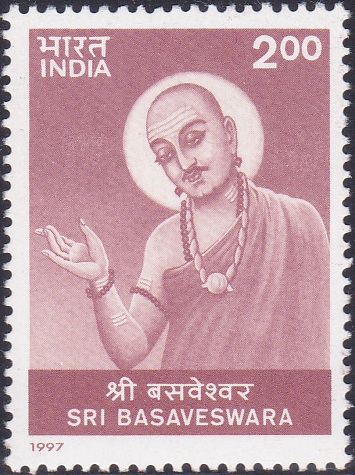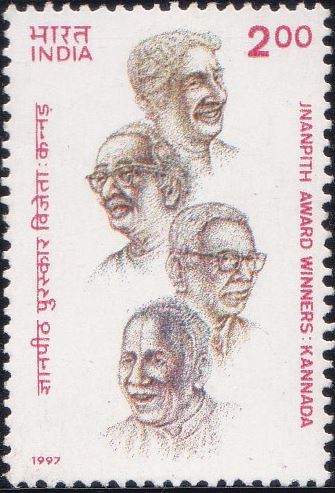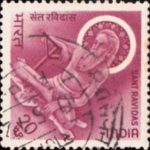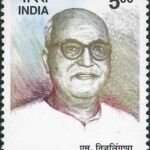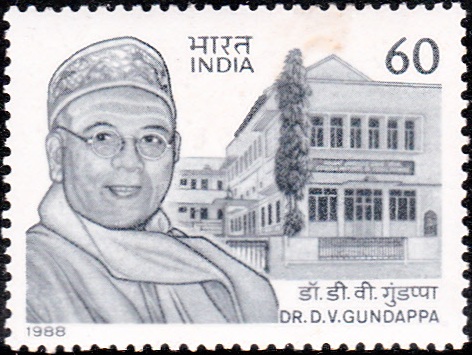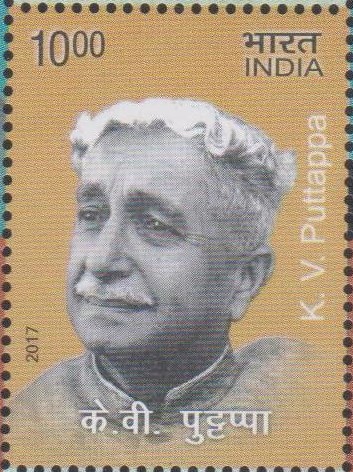
Basaveswara 1967
A commemorative postage stamp on 8th Centenary Celebrations of Shri Bhaktibhandari Basavanna, an Indian Kannada philosopher and poet from Bhakti movement during reign of king Bijjala I of Kalachuri dynasty in Karnataka :
 Issued by India
Issued by India
Issued on May 11, 1967
Issued for : The Posts & Telegraphs Department feels privileged to bring out a special stamp on the occasion of the eighth centenary celebration of Shri Basaveswara on 11.5.67.
Type : Stamp, Mint Condition
Colour : Scarlet
Denomination : 15 Paise
Overall Size : 3.34 X 2.46 cms.
Printing Size : 2.99 X 2.1 cms.
Perforation : 14 x 13½
Watermark : Printed on unwatermarked paper
Number Printed : 20,00,000
Number per issue Sheet : 54
Printing Process : Photogravure
Designed and Printed at : India Security Press
Name : Basava
Born on 1134 at Basavan Bagewadi, Bijapur, Karnataka, India
Died on 1167 at Kudalasangama, Bagalkot, Karnataka, India
About :
- India’s spiritual legacy can be likened to a rich skein of many strands. Through the dusty pages of her variegated history can be discerned the names of great men of original minds and of great reforming zeal who helped in shaping the destinies of the people. Mahavir and Gautam Buddha were the spearheads of such movements. In the 12th century, we come across one such soul – Basaveswara – who had a new vision of faith through surrender to a nobler conception of God. He forged new synthesis in the field of religion and philosophy and in a world where ethical values are fast eroding and spirituality is being overwhelmed by secularism, the teachings of Basaveswara stand in substance, as guide posts for reconstructing society on the true image of man.
- A great mystic, a religious and social reformer, a statesman and administrator, Basaveswara was born in the Bijapur District in Mysore State. He was a precocious child and was given to religious musings. An incident which occurred in the early days of his life gives an insight to his character and the course he was destined to follow. When he was eight years old, preparations had been made by his parents for his ‘Upanaynam’ or initiation ceremony to invest him with the ‘sacred thread’. At the gathering Basaveswara sprang a surprise on the bewildered assembly by refusing to undergo the ceremony, declaring that he had already been initiated by the grace of God. His appointment, in course of time, as the Chief Minister in King Bijjala’s court did not deter him from his spiritual pursuits. His teachings offered to the people a new understanding of God and opened up for his followers a new life of joy and fulfillment imbued with a wide range of appealing spiritual insights. His sociology is based on true democratic ideals, on common humanity and the dignity of the human person. He discouraged the cruder forms of idolatry and freed his followers from the tutelage of traditional priests. His faith did not countenance the wilder aberrations of the mortification of the human body. Basaveswara believed that a devotee need not necessarily detach himself from the world nor eschew worldly enjoyment but that he should partake of the varied blessings of worldly life humbly and unselfishly without vanity or pride. He also firmly believed that neither sex, social status nor caste would disqualify one from attaining salvation.
- The corpus of Basaveswara’s teachings is embodied in simple verse form known as ‘Vachanas’. They are all written in the Kannada language; their verbal suppleness gives them a quiet, inimitable cadence. Many of the Vachanas have been set to music. Although they are direct and simple with metaphors and analogies, they are charged with mystic overtones and spiritual insight. Recourse has been taken to every nuance possible, capable of exploiting the intensity of words and the inner resonance of the language. As one of the pioneers of this novel form of literary expression, Basaveswara has left an indelible mark in the history of Kannada literature.
- Basaveswara passed away in the year 1167 leaving to posterity his legacy as a religious reformer, as a man of letters and, above all, as a wise and progressive leader who taught men the art of right living.


